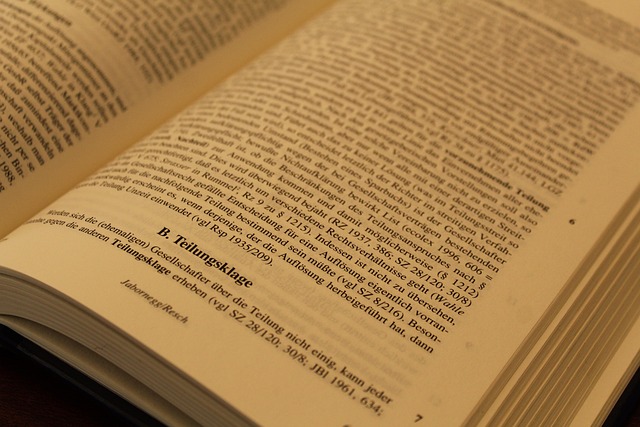A last will and testament is crucial for effective estate planning, ensuring assets are distributed according to one's wishes after their passing. This legal document provides peace of mind, prevents disputes among beneficiaries, and allows individuals to maintain control over their possessions. Creating a comprehensive will involves clearly listing all assets, identifying beneficiaries, and providing specific instructions for distribution, with regular updates based on life changes. Consulting a legal professional ensures the will's legality and adaptability to unique circumstances, safeguarding one's legacy while honoring values and intentions.
Ensuring your assets are distributed according to your wishes after your passing is vital estate planning. This involves creating a robust last will and testament—a legal document that outlines how your property, possessions, and wealth should be allocated among beneficiaries upon your death. This article guides you through the process, focusing on the importance of fair asset distribution, strategies for achieving it, and tips for crafting a comprehensive last will and testament to protect your assets and fulfill your legacy.
- Understanding the Last Will and Testament: A Legal Framework
- Why Proper Asset Distribution is Crucial in Estate Planning
- Strategies for Ensuring Fair and Efficient Distribution
- Tips for Creating a Comprehensive Will to Protect Your Assets
Understanding the Last Will and Testament: A Legal Framework

A well-drafted last will and testament is a cornerstone of estate planning, ensuring that your assets are distributed according to your wishes after your passing. This legal document serves as a blueprint for how your property, investments, and possessions will be allocated among your beneficiaries. It’s not just about dividing assets; it also allows you to appoint executors who will oversee the administration of your estate, providing guidance on specific instructions and ensuring compliance with your final wishes.
The last will and testament is a powerful tool for maintaining control over your affairs even in your absence. By clearly stating your intentions, you can avoid potential disputes among family members or loved ones, ensuring a smoother process for everyone involved. This legal framework offers peace of mind, knowing that your assets will be handled according to your specific guidelines, thereby reflecting your values and priorities.
Why Proper Asset Distribution is Crucial in Estate Planning

Proper asset distribution through a well-crafted last will and testament is a cornerstone of effective estate planning. It ensures that your possessions are allocated according to your wishes, providing peace of mind and preventing potential disputes among beneficiaries. A will serves as a legal document that outlines how you want your assets to be divided after your passing, allowing you to maintain control even in your absence.
Without a proper will, distribution can become a messy and contentious process, leading to unwanted outcomes. It’s crucial for individuals with substantial assets to clearly define their preferences to honor their values and intentions. By proactively planning through a last will and testament, you safeguard your legacy, ensuring that your estate is managed efficiently and in line with your wishes.
Strategies for Ensuring Fair and Efficient Distribution

Creating a last will and testament is a proactive step in ensuring your assets are distributed according to your wishes after your passing. A well-drafted will acts as a roadmap, guiding the distribution process and minimizing potential disputes among beneficiaries. One of the key strategies involves clear and specific instructions for each asset, detailing who should receive what and any specific conditions or preferences.
Additionally, establishing trusts can be an effective method to facilitate fair and efficient distribution. Trusts allow you to name trustees responsible for managing assets and distributing them according to your will. This approach is particularly beneficial for complex estates or minor beneficiaries, as it provides structure and protection, ensuring your assets are managed responsibly and distributed in a controlled manner.
Tips for Creating a Comprehensive Will to Protect Your Assets

Creating a comprehensive will is essential to ensure your assets are distributed according to your wishes after your passing. Start by clearly defining your assets, including property, investments, and personal belongings. Identify beneficiaries for each asset, ensuring they are specific and up-to-date. Consider future changes in circumstances, such as marriages or births, and update your will accordingly.
A well-drafted last will and testament should include a clear statement of intent, disposition of all assets, and any special instructions or charitable bequests. Consult with an experienced legal professional to ensure your will is legally sound and tailored to your unique situation. Regularly reviewing and updating your will is crucial, especially after significant life events.
A well-drafted last will and testament is an indispensable tool for ensuring your assets are distributed according to your wishes after your passing. By understanding the legal framework of this document, recognizing the significance of equitable asset distribution, and implementing strategic planning, individuals can safeguard their estates and provide clarity for their loved ones. Creating a comprehensive will that reflects your intentions is a vital step in estate planning, allowing you to leave behind a legacy that honors your values and protects your assets.



